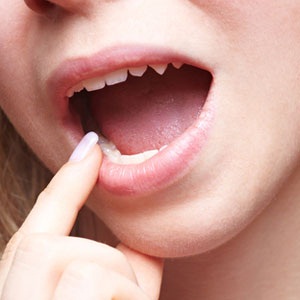
Most of us brush our teeth at least twice a day and, when we're not too tired, floss and use a mouthwash to rinse. We visit a dentist every two years or so and believe this is a pretty good effort when it comes to oral health.
But up to 40% of adults worldwide suffer some level of gum disease, and there are very serious illnesses now associated with gum disease including heart disease, stroke, uncontrolled diabetes, preterm births and respiratory disease.
What is gum disease
When plaque and tartar are not properly removed from between our teeth, gums become swollen and bleed, a condition referred to as gingivitis. If left untreated, periodontitis can develop. Gums pull away from the teeth and infected pockets appear below the gum line. The bones, gums, and connective tissue that support the teeth are destroyed without proper treatment and tooth loss may occur. The bacteria formed by gum disease can also enter the bloodstream and escalate our risk of other serious ailments like heart disease.
"Gum disease is not painful and most people don't know there is a problem until it is too late," says periodontist Dr Howard Gluckman. "The more aggressive type of gum disease is usually found in younger people; and the more chronic in older people, but age is not a risk factor on its own.
There are a whole host of factors including genetic susceptibility, specific bacteria present in the gums, the environment, smoking, diabetes and others," Gluckman says. There have also been strong scientific links between stress, obesity and gum disease.
So how do I know I have it?
There are a number of signs to look out for, says Gluckman:
Bleeding gums
It's a major indicator, though this can be masked in smokers as gum inflammation is reduced.
Loose teeth
The bone has been destroyed and the teeth are able to move in their sockets. Teeth can be mobile without the presence of gum disease but is not that prevalent.
Gum recession
When the necks of the roots are exposed due to the loss of bone below. This can also be due to aggressive tooth brushing and orthodontic treatment.
Bad breath
The severity of bad breath varies from person to person, but sufferers are often not aware of it.
Sometimes the only way to detect periodontal disease is through a periodontal evaluation. This is especially important if you:
- Have symptoms of periodontal disease.
- Have heart disease, diabetes, respiratory disease or osteoporosis.
- Are thinking of becoming pregnant.
- Have a family member with periodontal disease.
- Have a sore or irritation in your mouth that does not get better within two weeks.
What can I do?
Brush your teeth regularly and floss, floss, floss. "Flossing is very important but is not very popular because it is difficult and requires fairly good manual dexterity," says Gluckman. Gum disease and decay starts most often in between the teeth that are rarely cleaned. You may find it easier to use small brushes to get between those difficult to reach teeth.
"Six-monthly visits to the dentist are essential to reduce the risk of gum disease and tooth decay. Patients who have already been diagnosed and treated for gum disease need to see a properly trained hygienist every three months to ensure the disease does not return," Gluckman says.
- (Health24)




 Publications
Publications
 Partners
Partners











